Refine listing
Actions for selected content:
15726 results in ISEAS-Yusof Ishak Institute
Frontmatter
-
- Book:
- Prosperity or Predicament?
- Published by:
- ISEAS–Yusof Ishak Institute
- Published online:
- 04 July 2025
- Print publication:
- 11 March 2024, pp i-iv
-
- Chapter
- Export citation
Prosperity or Predicament? Decoding Certification Challenges in Malaysia’s Palm Oil Industry
-
-
- Book:
- Prosperity or Predicament?
- Published by:
- ISEAS–Yusof Ishak Institute
- Published online:
- 04 July 2025
- Print publication:
- 11 March 2024, pp vii-viii
-
- Chapter
- Export citation
Foreword
-
-
- Book:
- Prosperity or Predicament?
- Published by:
- ISEAS–Yusof Ishak Institute
- Published online:
- 04 July 2025
- Print publication:
- 11 March 2024, pp v-vi
-
- Chapter
- Export citation
How Thailand’s Move Forward Party’s Fandom Strategy Shaped the 2023 General Election
-
-
- Book:
- How Thailand's Move Forward Party's Fandom Strategy Shaped the 2023 General Election
- Published by:
- ISEAS–Yusof Ishak Institute
- Published online:
- 16 April 2024
- Print publication:
- 10 March 2024, pp 1-17
-
- Chapter
- Export citation
Frontmatter
-
- Book:
- How Thailand's Move Forward Party's Fandom Strategy Shaped the 2023 General Election
- Published by:
- ISEAS–Yusof Ishak Institute
- Published online:
- 16 April 2024
- Print publication:
- 10 March 2024, pp i-iv
-
- Chapter
- Export citation
Foreword
-
- Book:
- How Thailand's Move Forward Party's Fandom Strategy Shaped the 2023 General Election
- Published by:
- ISEAS–Yusof Ishak Institute
- Published online:
- 16 April 2024
- Print publication:
- 10 March 2024, pp v-vi
-
- Chapter
- Export citation
How Thailand’s Move Forward Party’s Fandom Strategy Shaped the 2023 General Election
-
-
- Book:
- How Thailand's Move Forward Party's Fandom Strategy Shaped the 2023 General Election
- Published by:
- ISEAS–Yusof Ishak Institute
- Published online:
- 16 April 2024
- Print publication:
- 10 March 2024, pp vii-viii
-
- Chapter
- Export citation

Consuming Digital Disinformation
- How Filipinos Engage with Racist and Historically Distorted Online Political Content
-
- Published by:
- ISEAS–Yusof Ishak Institute
- Published online:
- 02 March 2024
- Print publication:
- 29 August 2023
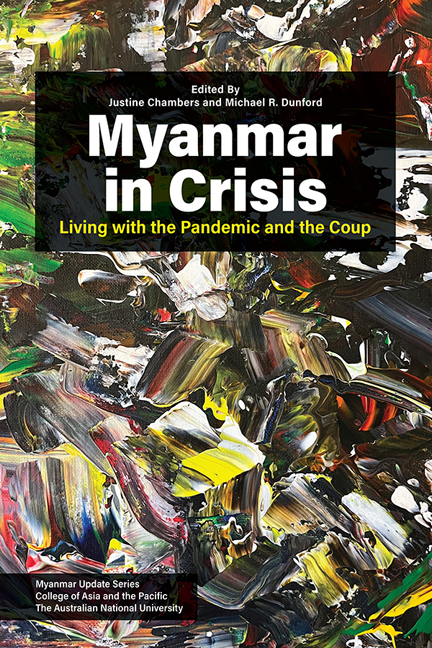
Myanmar in Crisis
- Living with the Pandemic and the Coup
-
- Published by:
- ISEAS–Yusof Ishak Institute
- Published online:
- 01 March 2024
- Print publication:
- 26 June 2023

Port Security and Preman Organizations in Indonesia
-
- Published by:
- ISEAS–Yusof Ishak Institute
- Published online:
- 01 March 2024
- Print publication:
- 15 August 2023
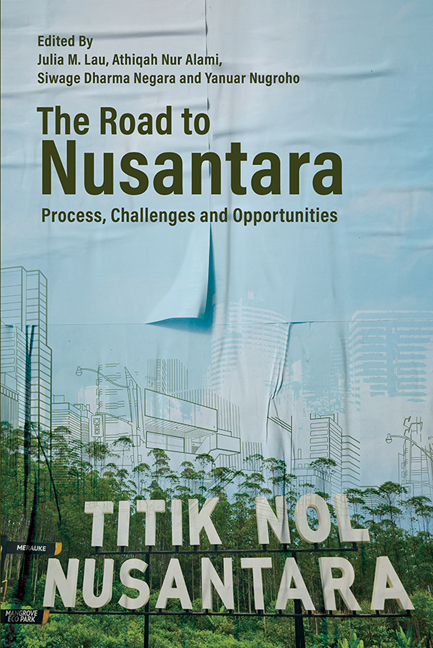
The Road to Nusantara
- Process, Challenges and Opportunities
-
- Published by:
- ISEAS–Yusof Ishak Institute
- Published online:
- 01 March 2024
- Print publication:
- 11 July 2023
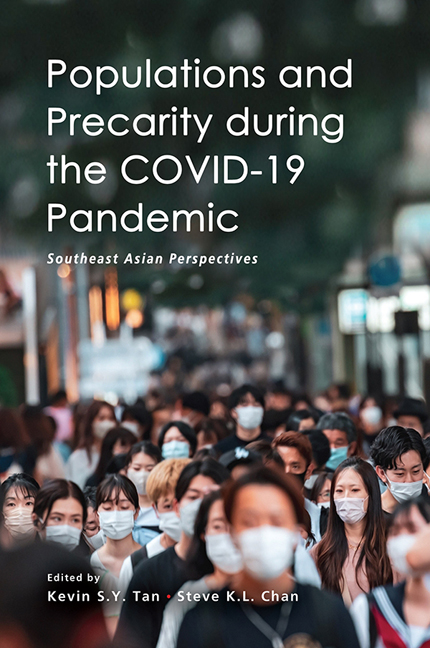
Populations and Precarity during the COVID-19 Pandemic
- Southeast Asian Perspectives
-
- Published by:
- ISEAS–Yusof Ishak Institute
- Published online:
- 01 March 2024
- Print publication:
- 22 June 2023
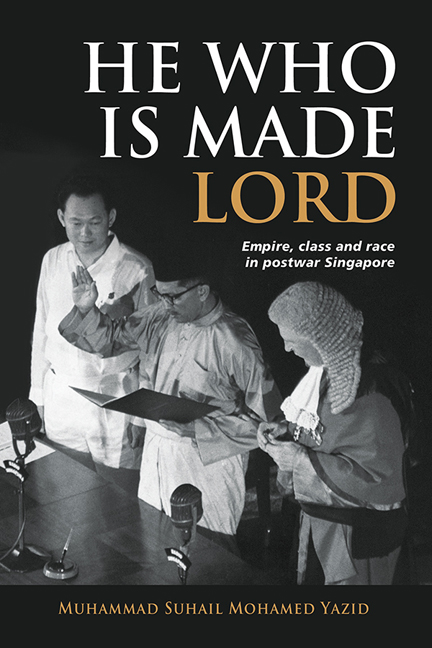
He Who Is Made Lord
- Empire, Class and Race in Postwar Singapore
-
- Published by:
- ISEAS–Yusof Ishak Institute
- Published online:
- 01 March 2024
- Print publication:
- 22 June 2023

New Chinese Migrants in Thailand and the Perceived Impact on Thai People
-
- Published by:
- ISEAS–Yusof Ishak Institute
- Published online:
- 01 March 2024
- Print publication:
- 13 August 2023
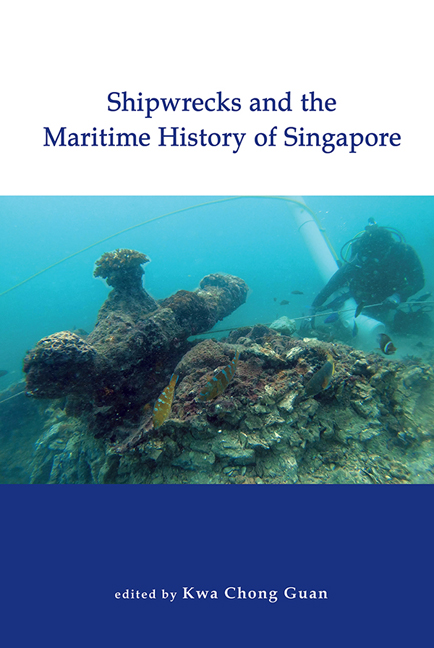
Shipwrecks and the Maritime History of Singapore
-
- Published by:
- ISEAS–Yusof Ishak Institute
- Published online:
- 01 March 2024
- Print publication:
- 05 September 2023
Foreword
-
-
- Book:
- ASEAN Post-2025
- Published by:
- ISEAS–Yusof Ishak Institute
- Published online:
- 04 July 2025
- Print publication:
- 01 March 2024, pp v-vi
-
- Chapter
- Export citation
Frontmatter
-
- Book:
- ASEAN Post-2025
- Published by:
- ISEAS–Yusof Ishak Institute
- Published online:
- 04 July 2025
- Print publication:
- 01 March 2024, pp i-iv
-
- Chapter
- Export citation
ASEAN Post-2025: Reimagining the ASEAN Economic Community
-
-
- Book:
- ASEAN Post-2025
- Published by:
- ISEAS–Yusof Ishak Institute
- Published online:
- 04 July 2025
- Print publication:
- 01 March 2024, pp vii-viii
-
- Chapter
- Export citation
ASEAN Post-2025: Reimagining the ASEAN Economic Community
-
-
- Book:
- ASEAN Post-2025
- Published by:
- ISEAS–Yusof Ishak Institute
- Published online:
- 04 July 2025
- Print publication:
- 01 March 2024, pp 1-40
-
- Chapter
- Export citation

Rhizome vs Regime
- Southeast Asia's Digitally Mediated Youth Movements
-
- Published by:
- ISEAS–Yusof Ishak Institute
- Published online:
- 28 February 2024
- Print publication:
- 25 March 2023
